Tragedy at Virginia Tech
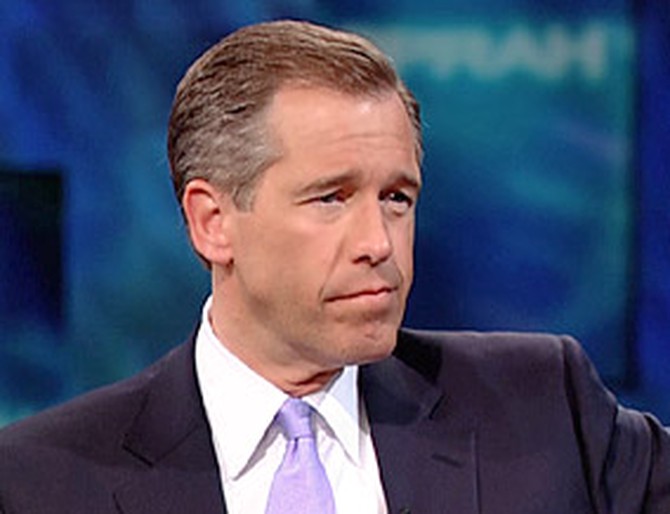
In the aftermath of the Virginia Tech tragedy , a national debate has emerged after videos and photographs of the gunman were aired on television and spread across the Internet. Does giving attention to killers send a dangerous message?
Having been the first to air the footage, NBC News finds itself at the center of this debate. Two days after the shootings, an overnight package containing what anchor Brian Williams called a "multimedia manifesto" of videos, photographs and writings arrived at the NBC Tower in New York City. Later that night on the NBC Nightly News , a portion of the package was aired.
Brian joins Oprah to discuss the decision. "I think it was, for us, the only decision, with some caveats here. An envelope arrives on our doorstep, a day late," Brian says. "This twisted, strange person sends an overnight envelope between mass shootings. He got our zip code wrong—he called it Rockefeller Avenue and not Rockefeller Plaza—so he was trying to have more impact, but it took two days to get to us."
Brian returned to New York from Virginia Tech's campus the day the package arrived, and he says he was immediately paged to his boss's office. "And I hold this document in my hands and we sit there at my boss's computer clicking on these boxes of new videos to open," he says. "We called the FBI. That was step one."
Did NBC ever consider not airing the videos? "To me there was never a debate. This was news. This is journalism," Brian says. "The debate was, how can we pare back, be as sensitive as possible in editing all of this garbage and profanity, to give a sense of what we have here."
In airing the videos, Brian says the news organization's aim was to answer the questions that had been asked in the previous days. "Did he act alone? Who is he? What was his motivation? What did he do in the two hours the campus wasn't locked down between shootings?" Brian says. "All those four questions were materially answered here."
Having been the first to air the footage, NBC News finds itself at the center of this debate. Two days after the shootings, an overnight package containing what anchor Brian Williams called a "multimedia manifesto" of videos, photographs and writings arrived at the NBC Tower in New York City. Later that night on the NBC Nightly News , a portion of the package was aired.
Brian joins Oprah to discuss the decision. "I think it was, for us, the only decision, with some caveats here. An envelope arrives on our doorstep, a day late," Brian says. "This twisted, strange person sends an overnight envelope between mass shootings. He got our zip code wrong—he called it Rockefeller Avenue and not Rockefeller Plaza—so he was trying to have more impact, but it took two days to get to us."
Brian returned to New York from Virginia Tech's campus the day the package arrived, and he says he was immediately paged to his boss's office. "And I hold this document in my hands and we sit there at my boss's computer clicking on these boxes of new videos to open," he says. "We called the FBI. That was step one."
Did NBC ever consider not airing the videos? "To me there was never a debate. This was news. This is journalism," Brian says. "The debate was, how can we pare back, be as sensitive as possible in editing all of this garbage and profanity, to give a sense of what we have here."
In airing the videos, Brian says the news organization's aim was to answer the questions that had been asked in the previous days. "Did he act alone? Who is he? What was his motivation? What did he do in the two hours the campus wasn't locked down between shootings?" Brian says. "All those four questions were materially answered here."
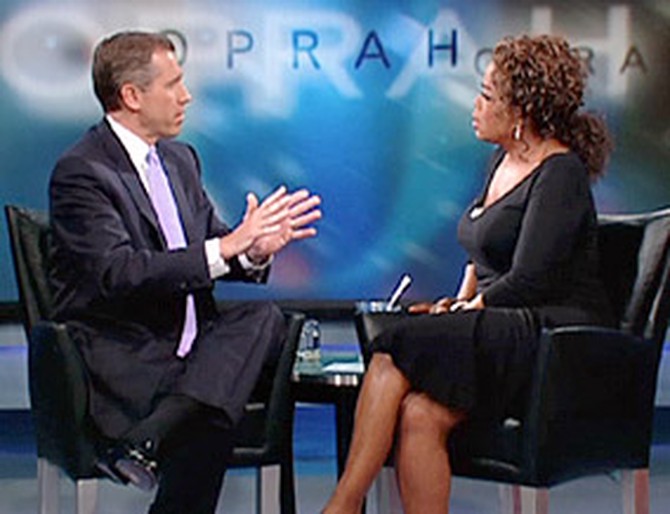
Brian says NBC News "didn't seek this role in this story." Still, he says they worked hard to remain sensitive while deciding what to include in their report. Of the "garbage" that Brian says was in the package, the network aired only 2 minutes and 20 seconds of the 25 minutes of videos it received and just 37 sentences of the 23 pages of writings. "But however uncomfortable it is, that it was on every front page the next day proves this was journalism," Brian says. "This was news and a material advance in this story."
Once the network realized the story had struck a nerve with the public, did NBC ever reconsider its decision? "We were very careful, very careful on Nightly News. We talked about it a lot. Seven and a half hours. We took the entire day and we winnowed it down to this small part. We introduced it carefully on Nightly News. Then everybody's tape machines were rolling. Then it was off to the races. And that night, by the time I got home, my wife and I turned on the cable channels…it was what we call wallpaper," Brian says. "We, in our house, ended up turning it off and looking away."
By the time Brian saw the footage at home, he says NBC had placed restrictions on the video. "So by the time the Today show came on in the morning, we were already being very careful as to how many pictures we were showing, and I think today, now, it has all but disappeared," he says. "We get it. We saw it. This is a madman. But it needed to be seen."
"It disappeared, Brian, because the people said, because the public said, 'We don't want to see it,'" Oprah says.
"Also because the news organizations who are made up of fellow citizens and moms and dads and husbands and wives said, 'Okay. We get it.' It spoke materially to the biggest story in our country," Brian says.
Once the network realized the story had struck a nerve with the public, did NBC ever reconsider its decision? "We were very careful, very careful on Nightly News. We talked about it a lot. Seven and a half hours. We took the entire day and we winnowed it down to this small part. We introduced it carefully on Nightly News. Then everybody's tape machines were rolling. Then it was off to the races. And that night, by the time I got home, my wife and I turned on the cable channels…it was what we call wallpaper," Brian says. "We, in our house, ended up turning it off and looking away."
By the time Brian saw the footage at home, he says NBC had placed restrictions on the video. "So by the time the Today show came on in the morning, we were already being very careful as to how many pictures we were showing, and I think today, now, it has all but disappeared," he says. "We get it. We saw it. This is a madman. But it needed to be seen."
"It disappeared, Brian, because the people said, because the public said, 'We don't want to see it,'" Oprah says.
"Also because the news organizations who are made up of fellow citizens and moms and dads and husbands and wives said, 'Okay. We get it.' It spoke materially to the biggest story in our country," Brian says.
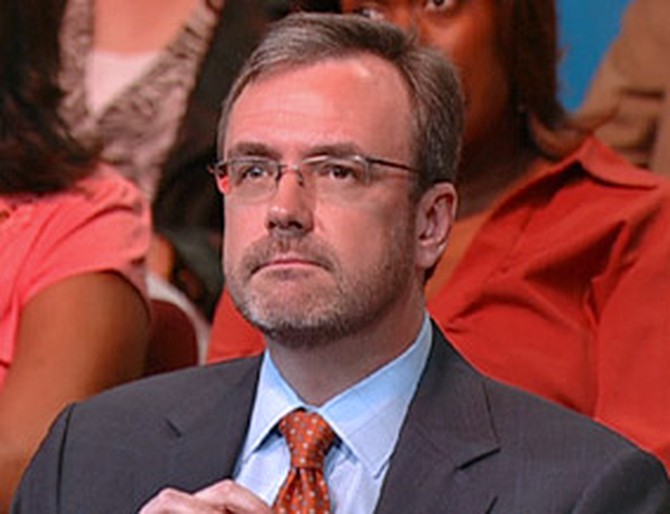
When NBC received the gunman's package, NBC News president Steve Capus says his division reacted like many other news organizations would have. "The first thing, of course, your competitive juices kick in," he says. "But then we did something that doesn't always take place in newsrooms. We hit the brake pedal. We stopped. And we didn't even mention to the world that we had this material. We sat on it all day long, and we waited. And we thought about how to handle it and what to do with it. What was appropriate. What not to show."
Steve says the network decided to air what it did after having the head of NBC's policy and standards group and others look at everything and decide what was unusable, such as "over-the-top profanity and incredibly violent images."
At the time of the report, Steve says, the largest unanswered question was "Why?" Steve believes that airing some of the videos helped give the public insight into that question. "This was a videotape that showed somebody on the edge. Somebody who was ready to blow. … To me, this started this dialogue again about what is going on in America. What about the society? What about the pop culture?" Steve says. "Sometimes good journalism is bad public relations. And I'm a father. Brian is. These are very difficult decisions."
If Steve had to make the same decisions again, would he? "I would. Because I believe it was newsworthy and I believe we handled it with as much sensitivity as we possibly could," Steve says. "This is a great discussion. … But just as when we lost President Kennedy, we didn't diminish any of that pain or the loss by knowing who Lee Harvey Oswald was. And this was a horrible tragedy for America. That's the bottom line on all of it. There's no question about it."
Steve says the network decided to air what it did after having the head of NBC's policy and standards group and others look at everything and decide what was unusable, such as "over-the-top profanity and incredibly violent images."
At the time of the report, Steve says, the largest unanswered question was "Why?" Steve believes that airing some of the videos helped give the public insight into that question. "This was a videotape that showed somebody on the edge. Somebody who was ready to blow. … To me, this started this dialogue again about what is going on in America. What about the society? What about the pop culture?" Steve says. "Sometimes good journalism is bad public relations. And I'm a father. Brian is. These are very difficult decisions."
If Steve had to make the same decisions again, would he? "I would. Because I believe it was newsworthy and I believe we handled it with as much sensitivity as we possibly could," Steve says. "This is a great discussion. … But just as when we lost President Kennedy, we didn't diminish any of that pain or the loss by knowing who Lee Harvey Oswald was. And this was a horrible tragedy for America. That's the bottom line on all of it. There's no question about it."
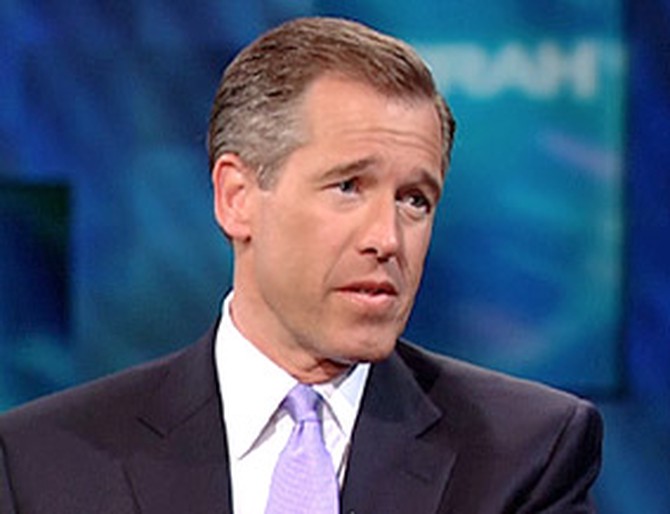
Brian acknowledges it can sometimes be hard to see certain images in the news. "Remember, Abu Ghraib, those were horrible pictures to look at. When Morley Safer was covering Vietnam and we saw our guys lighting the Vietnamese village in the background, that was tough to watch," Brian says. "But we aired it and we published it, and it spoke to something among us. A story that was going on. And people have to remember, with propriety, that is our role."
Brian says he hopes the videos are never shown in their entirety. "This stuff we didn't use, these videos that on Steve's computer we opened box by box, I hope may they never see the light of day. May none of us ever see this. And I'm sorry I did because it's profane and it is—it's beyond over the edge," Brian says. "We just wanted to see him, to give a picture of who this was and answer some of these ancillary questions. … It got to be too much."
Brian says he hopes the videos are never shown in their entirety. "This stuff we didn't use, these videos that on Steve's computer we opened box by box, I hope may they never see the light of day. May none of us ever see this. And I'm sorry I did because it's profane and it is—it's beyond over the edge," Brian says. "We just wanted to see him, to give a picture of who this was and answer some of these ancillary questions. … It got to be too much."
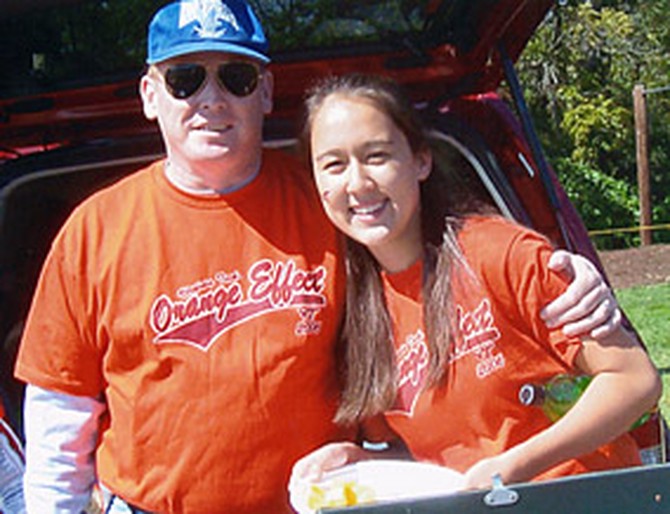
Grieving families are now saying their final goodbyes to the children they lost in the Virginia Tech tragedy. Memorial services and funerals have been ongoing for the 32 victims whose lives were cut short, including 19-year-old Mary Read.
Mary, a freshman, was a musician and aspiring school teacher. "Mary was a wonderful girl. She was a big sister. She was a good friend. She was a great daughter and granddaughter," says Cathy, Mary's stepmother. "And it's a source of comfort to us now to know how strong she was in her faith and to know, as her little brothers used to say, Mary is in heaven now. I mean, we know that. And we know she's happy there, and that helps a lot."
Pete, Mary's father, says his daughter wanted to do good things with her life. "She wanted to learn so she could teach. And that was really her core conviction," he says. "I think those were her dreams, and her hope for the future was to be able to do things for other people. That's what she wanted to do in her life."
Mary, a freshman, was a musician and aspiring school teacher. "Mary was a wonderful girl. She was a big sister. She was a good friend. She was a great daughter and granddaughter," says Cathy, Mary's stepmother. "And it's a source of comfort to us now to know how strong she was in her faith and to know, as her little brothers used to say, Mary is in heaven now. I mean, we know that. And we know she's happy there, and that helps a lot."
Pete, Mary's father, says his daughter wanted to do good things with her life. "She wanted to learn so she could teach. And that was really her core conviction," he says. "I think those were her dreams, and her hope for the future was to be able to do things for other people. That's what she wanted to do in her life."
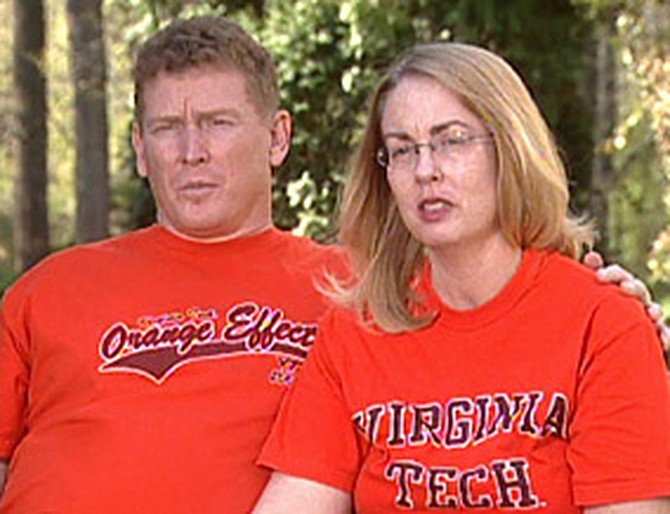
Pete and Cathy urge the media to focus on the positive things the victims had accomplished, not the heinous act of one individual. "People need to know about her and all the other victims and all the good that they did," Cathy says. "They went to Virginia Tech. I mean, they wanted to invent the future just like Virginia Tech says. They got started, but they didn't finish. We need to talk about that and we need to get that information out because that's what's important."
Pete hopes more media will choose to focus on the people who lost their lives, rather than the killer. "Some of the media have chosen to spend an hour inside the mind of a person whose mind we shouldn't want to spend time in. Why don't we want to spend an hour in the mind of aspiring teachers and people who want to serve our country and heroes like Professor Librescu, who blocked the door with his body to save his students?" Pete says. "We want all the media to make the positive choice and not a choice for the death and the darkness and the madness. Choose life. Choose light and choose love in your coverage."
Pete hopes more media will choose to focus on the people who lost their lives, rather than the killer. "Some of the media have chosen to spend an hour inside the mind of a person whose mind we shouldn't want to spend time in. Why don't we want to spend an hour in the mind of aspiring teachers and people who want to serve our country and heroes like Professor Librescu, who blocked the door with his body to save his students?" Pete says. "We want all the media to make the positive choice and not a choice for the death and the darkness and the madness. Choose life. Choose light and choose love in your coverage."
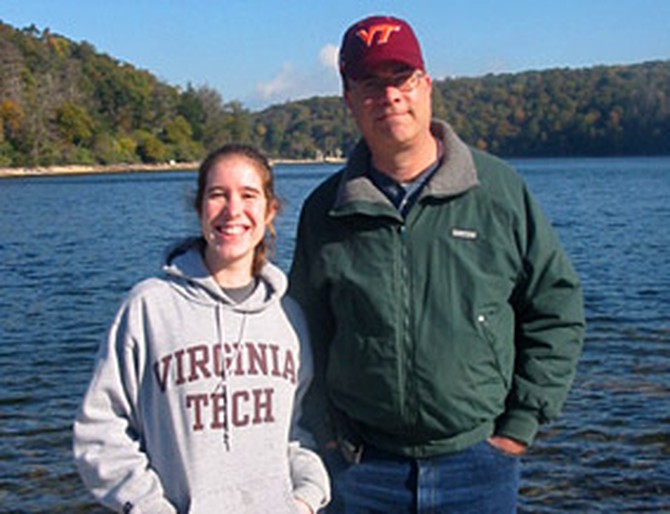
Leslie Sherman, a 20-year-old honor student, was killed in French class at Virginia Tech. Her parents, Tony Sherman and Holly Adams, say they want people to know just how proud they are of their daughter. "We were blessed for 20 years. We also recognize that there are too many people that waste their lives," Holly says. "She managed to pack more into her 20 years than most people do in a lifetime, so we want to celebrate her achievements as much as possible."
Tony says Leslie, who planned to study in Moscow in the summer of 2007, also ran the Marine Corps Marathon in October 2006. "She had been working on that for a year, and it was a goal. She was very goal-oriented, and you knew for a fact when she said she was going to accomplish a goal you could consider it done," Tony says.
As she ran the marathon, Leslie saw posters cheering runners on to beat Oprah's time of 4:29:30. "She ran it in 4:02 and some-odd seconds," Tony says. "When she was done, she told us that one of her goals was she was goaded by the sign to beat Oprah. And she did! … She was so very proud of her achievement, and we certainly were as well."
Tony says Leslie, who planned to study in Moscow in the summer of 2007, also ran the Marine Corps Marathon in October 2006. "She had been working on that for a year, and it was a goal. She was very goal-oriented, and you knew for a fact when she said she was going to accomplish a goal you could consider it done," Tony says.
As she ran the marathon, Leslie saw posters cheering runners on to beat Oprah's time of 4:29:30. "She ran it in 4:02 and some-odd seconds," Tony says. "When she was done, she told us that one of her goals was she was goaded by the sign to beat Oprah. And she did! … She was so very proud of her achievement, and we certainly were as well."
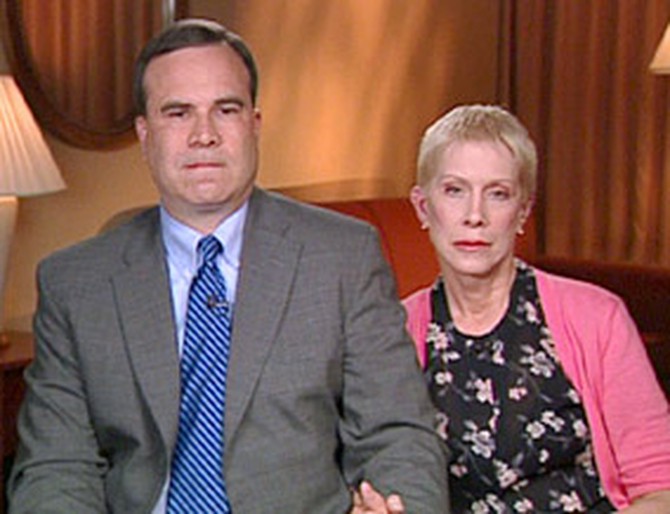
While they are united in celebrating their daughter's achievements, Tony and Holly disagree on the release of the Virginia Tech gunman's videos.
Tony believes that instead of spending airtime on the shooter, he would rather celebrate the lives of the victims. "I want this period of time, at least for right now, to be a focus on my daughter and her achievements and those of all the other kids," Tony says. "These were fabulous—all of them, as well as the professors—they were just outstanding individuals, and just very multifaceted and just quality human beings. My initial reaction was I didn't want anything to detract from that."
On the other hand, Holly says she was grateful she had the chance to see the images of the gunman. "I was actually glad I got to put a name to the blame, to the shame of the whole event, and then a face to that name so that at least I could focus on the enemy here," she says. "People have a tendency to blame themselves—you know, 'We didn't do enough. We weren't good parents.' That's not the case. The case is that there was one sick individual, and I was glad to be able to identify that individual."
Holly also hopes that the videos will help prevent future tragedies. "I think by releasing some of the documentation that NBC had chosen to release to the public and to the public domain, so to speak, that they are giving teachers across the country and other people, or counselors, some kind of an idea of what the symptoms were so that they'll be maybe less intimidated the next time it comes across their desk, to make a report to get the student mental help."
Tony believes that instead of spending airtime on the shooter, he would rather celebrate the lives of the victims. "I want this period of time, at least for right now, to be a focus on my daughter and her achievements and those of all the other kids," Tony says. "These were fabulous—all of them, as well as the professors—they were just outstanding individuals, and just very multifaceted and just quality human beings. My initial reaction was I didn't want anything to detract from that."
On the other hand, Holly says she was grateful she had the chance to see the images of the gunman. "I was actually glad I got to put a name to the blame, to the shame of the whole event, and then a face to that name so that at least I could focus on the enemy here," she says. "People have a tendency to blame themselves—you know, 'We didn't do enough. We weren't good parents.' That's not the case. The case is that there was one sick individual, and I was glad to be able to identify that individual."
Holly also hopes that the videos will help prevent future tragedies. "I think by releasing some of the documentation that NBC had chosen to release to the public and to the public domain, so to speak, that they are giving teachers across the country and other people, or counselors, some kind of an idea of what the symptoms were so that they'll be maybe less intimidated the next time it comes across their desk, to make a report to get the student mental help."
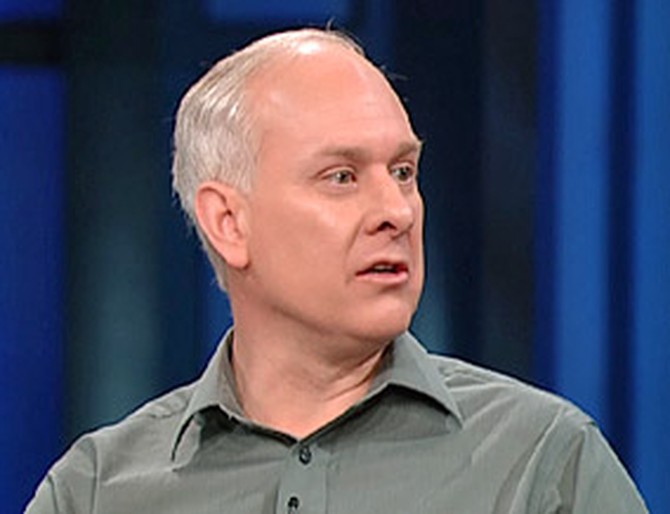
On April 20, 1999, 13 families in Littleton, Colorado, lost their loved ones in the shootings at Columbine High School. Brian Rohrbough's 15-year-old son, Daniel, was among those who were killed. Since then, Brian has been fighting to make public the home videos taped by the Columbine killers.
Brian, who has viewed the materials, believes that the release of these videotapes might have helped prevent the shootings at Virginia Tech. "In these videos, [the Columbine killers] told us what they were going to do, when they were going to do it, how they were going to do it, and most importantly, why they were going to do it," Brian says. "The videos cover a span of about 18 months, and they give insight to the real killers."
Despite fears of the glorification of the shooters and copycat killings, Brian says releasing the videos could give experts valuable information to understand them better. "I think letting the experts see all of this information, make their assessments, and then making it all available to the public would stop [more shootings from happening]," he says.
Brian, who has viewed the materials, believes that the release of these videotapes might have helped prevent the shootings at Virginia Tech. "In these videos, [the Columbine killers] told us what they were going to do, when they were going to do it, how they were going to do it, and most importantly, why they were going to do it," Brian says. "The videos cover a span of about 18 months, and they give insight to the real killers."
Despite fears of the glorification of the shooters and copycat killings, Brian says releasing the videos could give experts valuable information to understand them better. "I think letting the experts see all of this information, make their assessments, and then making it all available to the public would stop [more shootings from happening]," he says.
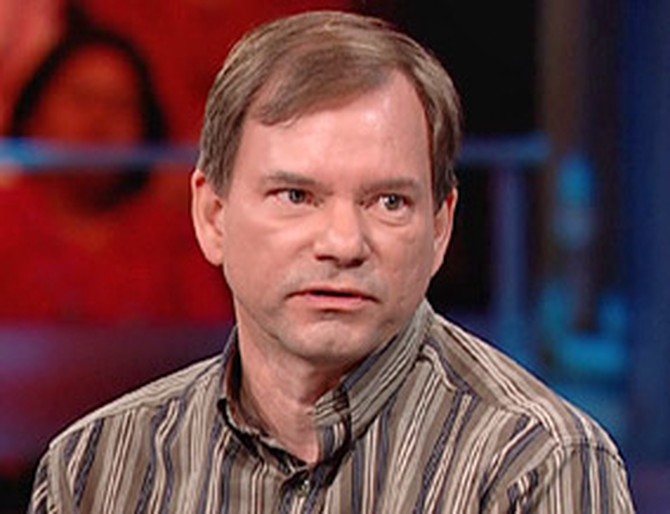
Tom Mauser, whose 15-year-old son Daniel also died at Columbine, says his primary concern about the release of the Virginia Tech killer's videos was the timing. "Two days after this tragedy in Virginia, two days before the anniversary of Columbine—I think that was a terrible time to present this video," he says.
Before releasing the videos, Tom says NBC should have consulted with the public. "They are part of the community, and they have to be sensitive to what that does," he says. "We had a killer who had a manifesto, and NBC allowed itself to be used by that killer to broadcast that manifesto. Unfortunately, I think we do have to release materials like this, but there's a time. And I frankly think the world could have waited a while before getting this information."
Steve Capus, however, says NBC did not publish the manifesto but only small part of it—which probably thwarted the shooter's intentions. "He didn't get what he wanted, because we withheld so much of it," he says.
In releasing parts of the videos, Steve says the intention was to try to provide people with some answers behind the shootings—not to put the killer on a pedestal. "Our video was after the fact. There wasn't a glorification," Steve says. "In this man's twisted mind, the glorification came when he carried out these hateful acts. It wasn't the videotape that glorified it."
Before releasing the videos, Tom says NBC should have consulted with the public. "They are part of the community, and they have to be sensitive to what that does," he says. "We had a killer who had a manifesto, and NBC allowed itself to be used by that killer to broadcast that manifesto. Unfortunately, I think we do have to release materials like this, but there's a time. And I frankly think the world could have waited a while before getting this information."
Steve Capus, however, says NBC did not publish the manifesto but only small part of it—which probably thwarted the shooter's intentions. "He didn't get what he wanted, because we withheld so much of it," he says.
In releasing parts of the videos, Steve says the intention was to try to provide people with some answers behind the shootings—not to put the killer on a pedestal. "Our video was after the fact. There wasn't a glorification," Steve says. "In this man's twisted mind, the glorification came when he carried out these hateful acts. It wasn't the videotape that glorified it."
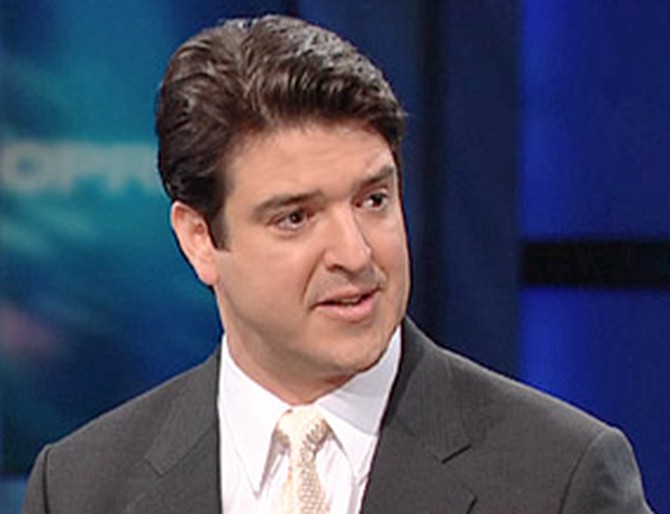
The release of the Virginia Tech killer's videos is a "social catastrophe," according to Dr. Michael Welner, who is chairman of The Forensic Panel and an associate professor of psychiatry at the New York University School of Medicine. "This is psychologically toxic. It's toxic to the victims. It's toxic to the families," he says.
Dr. Welner says that studying the videos will not help us recognize potential warning signs because it doesn't depict how the gunman was in everyday life. "It's a fiction, and even as a psychiatrist, you can't learn from that because it's phony," Dr. Welner says. "You can't see how disorganized and irrational [he is] because he's written a script. You don't see what doesn't connect."
Dr. Welner says that studying the videos will not help us recognize potential warning signs because it doesn't depict how the gunman was in everyday life. "It's a fiction, and even as a psychiatrist, you can't learn from that because it's phony," Dr. Welner says. "You can't see how disorganized and irrational [he is] because he's written a script. You don't see what doesn't connect."
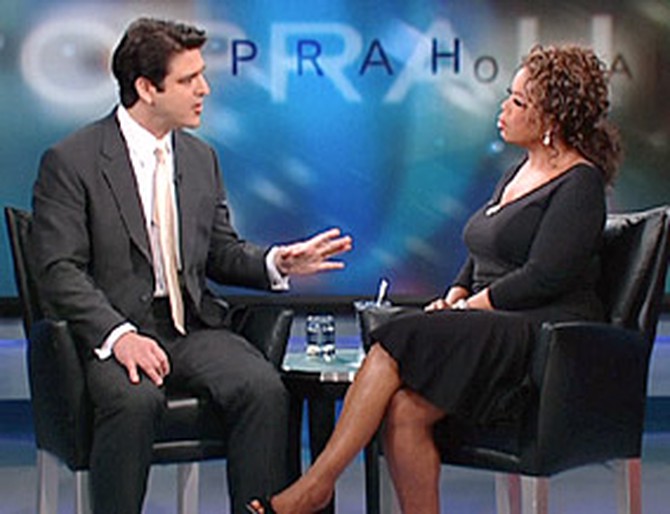
Dr. Welner also acts as a consultant for ABC. When asked what he thinks that network would do if it received the tape, he says, "I think the networks would have aired it, and they know it. But that doesn't change anything. It's still wrong. And it's wrong for NBC to say now that they'd do it again. The networks are capable of making mistakes. They've made a grievous mistake. They have to own up to it," he says. "The issue is not an issue of blame. The issue is what can we learn from this going forward."
While he says the information could be made available to people with a specific interest—such as the victims' parents—Dr. Welner says public discussion can be carried on without these images.
"If people have access to it and are flooded with it and are desensitized, people will be inspired by this," he says. "Because what it represents is immortality, strength, toughness to a person who has none, and it gives a person on the fringe someone to identify with and someone who has power and empowered himself against society."
While he says the information could be made available to people with a specific interest—such as the victims' parents—Dr. Welner says public discussion can be carried on without these images.
"If people have access to it and are flooded with it and are desensitized, people will be inspired by this," he says. "Because what it represents is immortality, strength, toughness to a person who has none, and it gives a person on the fringe someone to identify with and someone who has power and empowered himself against society."

Dr. Susan Lipkins, a nationally renowned psychologist, campus violence expert and author of Preventing Hazing, says the Virginia Tech shootings could have been prevented. "I believe that we have to use this to realize that our mental health system is broken and that we need to fix it now," she says.
Dr. Lipkins says the system failed to help the shooter at various opportunities when he was a child, in high school and in college. "There were many, many signs. He could have really benefited from medicine, and I believe that by high school and college they should have known this," she says.
While she says a lack of counseling resources contributes to the problem, Dr. Lipkins believes people who recognize that something might be wrong with someone should listen to their gut. "I feel like everybody should have joined together as a group of bystanders and gone to the administration and said, 'We have to do something. We have to help this young boy, and we have to protect ourselves,'" she says. "And as active bystanders, we have to get up and we have to question authority. Sometimes they're not right."
Dr. Lipkins says the system failed to help the shooter at various opportunities when he was a child, in high school and in college. "There were many, many signs. He could have really benefited from medicine, and I believe that by high school and college they should have known this," she says.
While she says a lack of counseling resources contributes to the problem, Dr. Lipkins believes people who recognize that something might be wrong with someone should listen to their gut. "I feel like everybody should have joined together as a group of bystanders and gone to the administration and said, 'We have to do something. We have to help this young boy, and we have to protect ourselves,'" she says. "And as active bystanders, we have to get up and we have to question authority. Sometimes they're not right."
Published 01/01/2006

